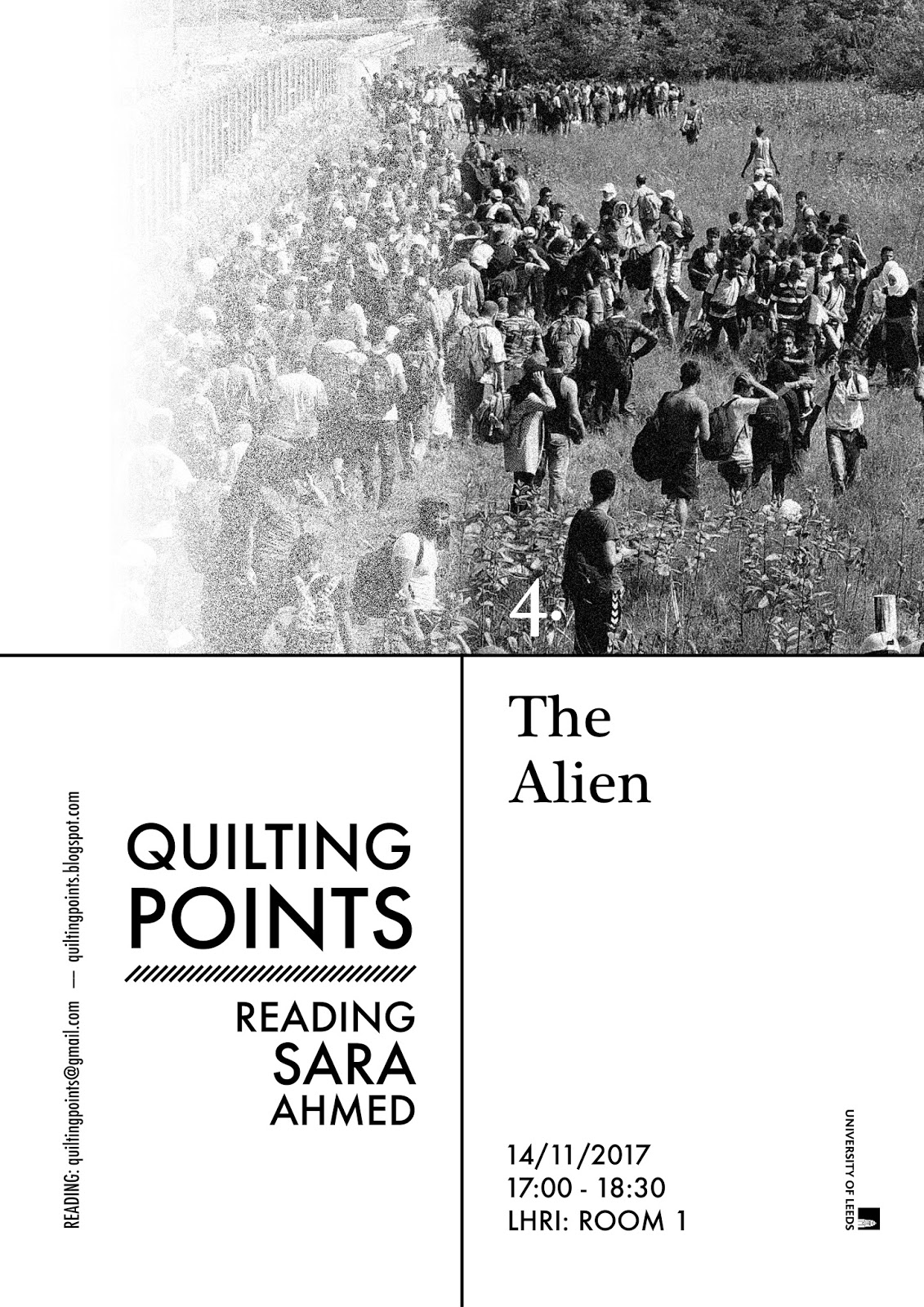For our fourth session, we will be discussing Sara Ahmed's concept of 'the alien' through a reading of her essay 'Happy Objects,' collected in Melissa Gregg and Gregory J. Seigworth's The Affect Theory Reader (2010) and republished under the same title in Ahmed's book, The Promise of Happiness (2009). A PDF is available via Google Drive here . (Secondary reading: Ahmed's post, 'Smile!' which appeared on her blog feministkilljoys in February 2017 - accessible here ). In 'Happy Objects,' Ahmed conceptualises affects as "sticky" insofar as 'affect is what sticks, or what sustains or preserves the connection between ideas, values and objects' (29). She considers how, in the process of being affected, different affects are transferred onto particular objects and make such objects the arbiters of particular feelings. This is to say, an object that makes one feels good affectively is affectively transformed into a goo...


